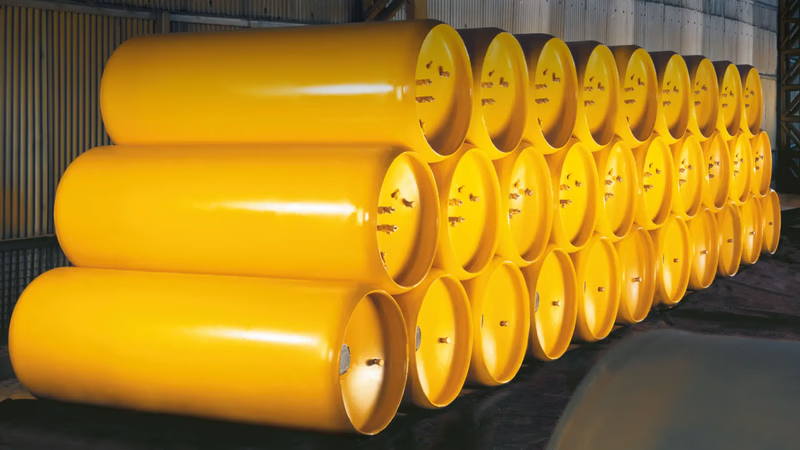
Chlorine is vital for water treatment and industrial applications.
Chlorine is widely used to disinfect drinking water and wastewater. It effectively kills bacteria, viruses, and other microorganisms, making the water safe for consumption and preventing the spread of waterborne diseases. Chlorine is a primary disinfectant used in swimming pools and spa facilities. It helps control the growth of algae, bacteria, and other microorganisms, ensuring clean and safe swimming conditions. Chlorine compounds, such as sodium hypochlorite (bleach), are commonly used as bleaching agents and disinfectants in various industries. They are used for whitening fabrics, paper products, and as a general-purpose cleaner for household surfaces.
Chlorine compounds are used in the bleaching process for paper and pulp production. Chlorine dioxide is an alternative bleaching agent that reduces the environmental impact compared to elemental chlorine. Chlorine is used in the synthesis of various pharmaceuticals and medicines. It is involved in the production of drugs such as antibiotics, analgesics, and antiseptics. Chlorine-based products are used for odor control in sewage treatment plants, waste management facilities, and other areas where strong odors are generated.
Chlorine is an important chemical element in water treatment, germicide, pesticides, disinfectants in bleach and mustard gas. Chlorine is also used to make a wide range of everyday items. Chlorine is one of the main and most common chemical elements used in the water and wastewater treatment industry, which is used in industrial and domestic applications in various ways due to its high disinfection and bleaching properties. It is used to eliminate bacteria and other microbes in drinking water reserves. Today, even small water reserves are constantly being chlorinated.
While chlorine is widely used and beneficial, it should be handled with care due to its toxic nature. In its gaseous form, chlorine can cause severe respiratory irritation and damage if inhaled in high concentrations. It can also react with certain organic compounds to produce potentially harmful byproducts. Proper safety measures, such as ventilation and protective equipment, should be employed when working with chlorine or chlorine-containing substances.
One of the main uses of chlorine is water purification and disinfection, which is due to the production of hypochlorous acid HOCL in the reaction of chlorine with water. Hypochlorous acid or free chlorine has a very high power in attacking microbes and pathogens in the water and therefore can eliminate them in the shortest time. It is also used in the production of paper products, disinfectants, pigments, foodstuffs, insecticides, dyes, petroleum products, plastics, medicines, textiles, solvents and many other consumer products. In organic compounds, if chlorine replaces hydrogen (synthetic rubber), it often causes the required properties in these compounds, so in organic compounds, this element is widely used as an oxidizing agent and substitute.
Chlorine is a key component in the production of a wide range of chemicals. It is used in the manufacturing of PVC (polyvinyl chloride) for plastics, solvents, pesticides, pharmaceuticals, and other industrial products. Chlorine is utilized in the production of chlorinated solvents like carbon tetrachloride, trichloroethylene, and perchloroethylene. These solvents find applications in dry cleaning, metal degreasing, and as industrial cleaning agents. Chlorine-based disinfectants are used in healthcare settings to sterilize medical equipment, surfaces, and instruments. They help prevent the spread of infections in hospitals and clinics. Chlorine is used in the food industry for disinfection purposes. It is employed to sanitize food processing equipment, water used in food production, and to control microbial growth in food products.
-
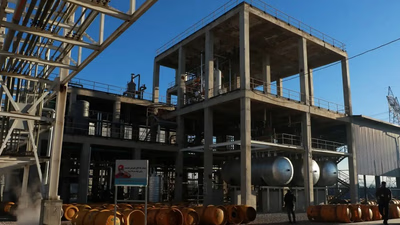
Chlorine prices in West Asia are significantly influenced by the availability and cost of natural gas, a primary feedstock for production. Countries like Saudi Arabia, Qatar, and the UAE benefit from abundant natural gas reserves, allowing them to produce chlorine at competitive prices. This capability positions them as key exporters in the global market, where their export volumes can affect supply-demand dynamics and pricing. The price of chlorine is generally reasonable, but quality varies; high-quality chlorine is white and has a gas-like smell, while lower quality is yellowish. Market conditions such as currency exchange rates, trade policies, and tariffs also play crucial roles in determining chlorine prices globally. The relationship between West Asian chlorine prices and global markets is complex and dynamic, influenced by demand from major consuming regions like North America and Europe. As West Asian producers leverage their cost advantages, they may exert downward pressure on global prices if supply outpaces demand. Overall, while regional factors are significant, broader economic trends and industry shifts also shape the pricing landscape for chlorine.
-
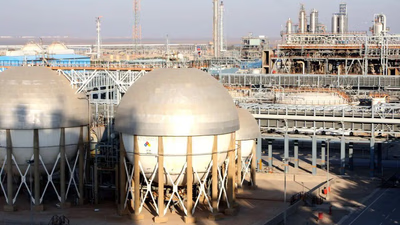
Chlorine exists primarily as a gas, characterized by its yellow-green color and pungent odor. It can be liquefied at temperatures below -34. 04°C and solidified at temperatures below -101. 5°C, although the solid form is rare and mainly used in specialized settings. Chlorine gas is widely utilized for water disinfection, pool sanitation, and various industrial applications due to its ease of handling. Liquid chlorine, which is amber-colored and denser than water, is commonly used in larger-scale operations like water treatment plants but requires careful handling due to its corrosive nature. Solid chlorine, typically found in powder form, serves specific purposes such as disinfecting surfaces and water purification but is less common in everyday use. Each form of chlorine has distinct advantages and safety considerations; for instance, while chlorine gas is cost-effective with a six-month usage period per capsule, it poses risks of leakage if not stored properly.
Liquid chlorine"s effectiveness diminishes over time and reacts quickly with other chemicals. Overall, understanding the properties and applications of each chlorine state is crucial for safe handling and effective use in various industries. "
-

Chlorine plays a crucial role in various applications, primarily in water purification and disinfection. It effectively eliminates bacteria, viruses, and other microorganisms, ensuring safe drinking water and preventing waterborne diseases. In swimming pools, chlorine maintains hygiene by controlling algae and microbial growth. Additionally, chlorine compounds like sodium hypochlorite serve as bleaching agents across industries, including textiles and paper production. Chlorine is also integral in pharmaceuticals, contributing to the synthesis of antibiotics and antiseptics. Its versatility extends to odor control in waste management and the production of everyday items such as plastics and solvents. Despite its benefits, chlorine must be handled with care due to its toxic nature; proper safety measures are essential when working with it. The chemical"s ability to produce hypochlorous acid enhances its effectiveness in attacking pathogens quickly. Overall, chlorine"s diverse applications underscore its importance in industrial processes and public health.
-
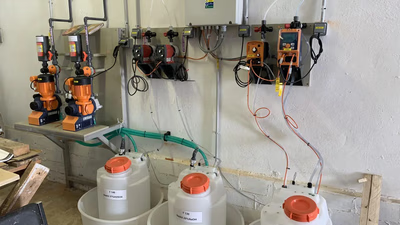
The Middle East is a key player in chlorine production, leveraging its abundant natural gas resources as a primary feedstock. Countries like Saudi Arabia and the UAE have established large-scale production facilities that cater to both domestic and international markets. The region"s strategic location enhances its export capabilities, facilitating access to global markets. Government support through policies and incentives has further bolstered the chemical industry, encouraging foreign investment and technology transfer. Rapid urbanization and industrial growth within the region have increased demand for chlorine-based products, including those used in water treatment and manufacturing. Regional cooperation among West Asian countries optimizes resources for efficient chlorine production, with nations like Iran and Qatar also contributing significantly to the market. The development of integrated petrochemical complexes supports the entire chemical value chain, enhancing competitiveness while diversifying economies away from oil dependency. As these countries continue to invest in their chemical sectors, they aim to create new revenue streams and employment opportunities. "
-
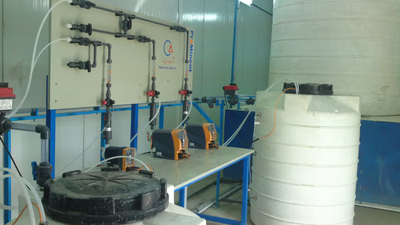
Chlorine, a yellow-green gas with the symbol Cl and atomic number 17, is a highly reactive halogen known for its strong oxidizing properties. It exists as diatomic molecules (Cl2) and has a pungent odor similar to bleach. Chlorine is widely utilized for its disinfectant capabilities, effectively eliminating bacteria, viruses, and other microorganisms in water treatment processes, swimming pools, and surface sanitation. Its compounds, such as sodium hypochlorite, serve as household cleaners. Beyond disinfection, chlorine plays a crucial role in manufacturing various products including plastics, solvents, pesticides, and pharmaceuticals. Despite its beneficial applications, chlorine must be handled with care due to its toxicity when inhaled or ingested in high concentrations. Chlorine"s significance extends to the production of safe drinking water and the synthesis of essential chemicals in industries. Its discovery dates back to 1774 by Carl Wilhelm Scheele and was named by Sir Humphry Davy in 1810. Chlorine"s versatility makes it an indispensable element across multiple sectors.





